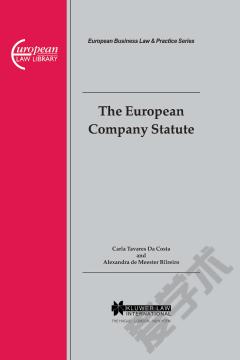European Company Law in Accelerated Progress
It is commonplace to speak of 'Europe as a major player in the global marketplace. In reality, however, persistent conflicts among the company and securities law regimes of the various Member States continue to hamper the full emergence of the EU as an economic power on a par with the US and China. Progress is under way, however, as this book amply testifies. In the wake of the Financial Services Action Plan (1999) and the Company Law and Corporate Governance Action Plan (2003), a series of EU regulations and ECJ cases has significantly eroded the national barriers to cross-border legal entities within the Union.The authors of these nine essays leading academics from Denmark, Germany, Italy, The Netherlands, Norway and the UK acknowledge and analyze this progress. Most demonstrate why they think further regulatory harmonization is essential, although some warn of potential dangers and pitfalls along the way. All in all, European Company Law in Accelerated Progress is a powerfully thought-provoking contribution to an important debate. Among the issues that arise are the following:shareholders rights;cross-border voting;corporate governance;disclosure; corporate restructuring;conflicts of interest;equity capital provision; andshareholders versus stakeholders.As an penetrating evaluation of the EUs capability to improve its corporate regulatory infrastructure and thereby attract more investors and business activities within its territory as a whole, this book offers securely grounded and valuable insights to all those interested in the field, from economic policymakers at every level of government to business persons and their counsel.Most of the essays here presented were originally delivered as papers at a conference organized by the Centre for European Company Law in Leiden, The Netherlands, in September 2005. The lectures are here offered in an updated and more elaborate form.
{{comment.content}}








 京公网安备 11010802027623号
京公网安备 11010802027623号